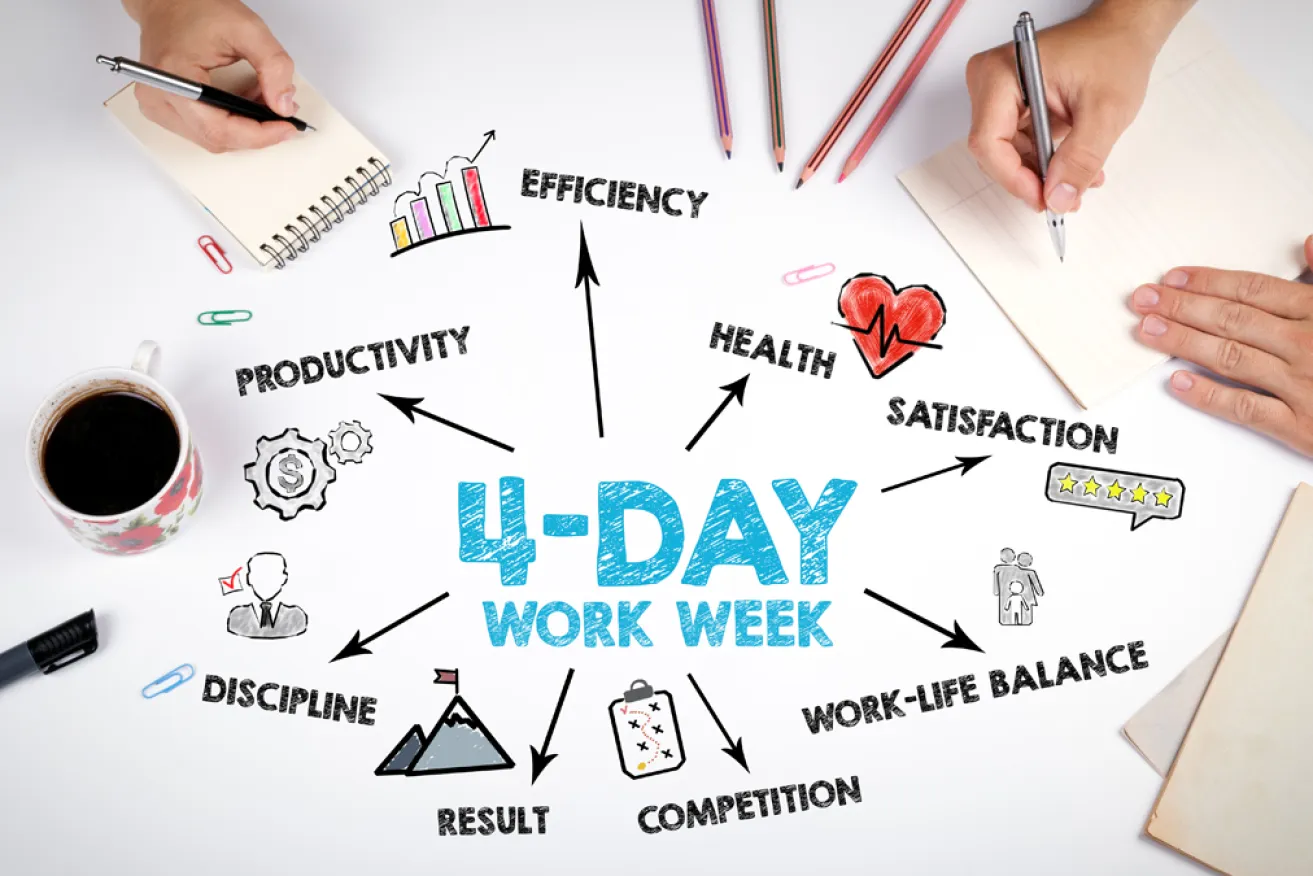Four-Day Workweek Revolutionises Finance Industry
By Robert Heyward
The finance industry, long associated with demanding hours and high-pressure environments, is seeing a major shift as Insignia, a leading company in the sector, becomes the first to introduce a four-day workweek trial. This groundbreaking move, part of a union agreement, is expected to reshape the industry’s work culture and signal broader changes in how the sector approaches productivity, employee well-being, and technological advancements.
The Four-Day Workweek Trial
Insignia’s decision to adopt the four-day workweek is notable in an industry where long hours are often seen as the norm. Traditionally, financial services employees have been expected to work extensive hours to meet client demands, manage complex transactions, and navigate fast-paced markets. However, the introduction of the four-day week aims to challenge this status quo, offering employees a better work-life balance while maintaining the company’s high standards of productivity.
Under the terms of the new arrangement, employees will work four days a week without a reduction in pay. The aim is to create a more sustainable working model that combats burnout, improves mental health, and fosters job satisfaction. Early adopters of the four-day workweek in other industries have reported significant boosts in employee morale and efficiency, and Insignia hopes to replicate these outcomes in finance.
Union Agreement and the Role of AI
This trial is part of a broader union agreement that also acknowledges the growing role of artificial intelligence (AI) in financial services. As AI becomes increasingly integrated into the industry, from automating routine tasks to providing sophisticated data analysis, its impact on how work is performed has become a key consideration for companies like Insignia.
The union deal emphasises the need for greater recognition of AI’s role in transforming financial workflows. By reducing the hours worked by humans while simultaneously increasing reliance on AI tools, Insignia is positioning itself at the forefront of technological innovation within the sector. The agreement ensures that the workforce is properly trained to collaborate with AI systems, enhancing both productivity and job security in an evolving landscape.
A New Model for Finance
Insignia’s trial of the four-day workweek is part of a broader movement across industries worldwide. The finance sector, in particular, has been slow to adopt flexible working arrangements compared to industries like technology and creative services. However, the global trend towards shorter workweeks is gaining momentum as companies recognize the benefits of flexibility in improving employee performance and retention.
This shift comes at a time when many financial institutions are grappling with high levels of employee burnout and turnover. The pressures of remote work during the pandemic, coupled with rising expectations for constant availability, have pushed companies to rethink their approach to work. Insignia’s leadership believes that this trial will not only help retain top talent but also set a new industry benchmark.
The Impact on Productivity and Culture
Although the four-day workweek is still in its early stages at Insignia, there is optimism that it will lead to a more focused and efficient workforce. Research from previous trials in other sectors has shown that employees often become more productive when given less time to complete tasks, as the condensed workweek encourages greater focus and time management.
Additionally, Insignia is expected to benefit from a more engaged and motivated workforce. By prioritising employee well-being and aligning with the evolving role of AI, the company hopes to maintain its competitive edge while fostering a healthier work culture.
The Future of Work in Financial Services
Insignia’s pioneering move could serve as a catalyst for other financial services firms to rethink their working models. As the finance industry continues to grapple with the demands of a digital, fast-paced world, the introduction of a four-day workweek could represent a more sustainable and innovative future for both employees and businesses.
If the trial proves successful, it could spark a wave of similar initiatives across the financial services sector, leading to widespread changes in how the industry operates. For now, all eyes are on Insignia as it navigates this transformative period, balancing the integration of advanced technology with the needs and well-being of its workforce.
In embracing the four-day workweek and recognising the pivotal role of AI, Insignia is positioning itself as a trailblazer in an industry ripe for change.





 Tweed Shire News2 years ago
Tweed Shire News2 years ago
 Motoring News2 years ago
Motoring News2 years ago
 COVID-19 Northern Rivers News3 years ago
COVID-19 Northern Rivers News3 years ago
 COVID-19 Northern Rivers News3 years ago
COVID-19 Northern Rivers News3 years ago
 Northern Rivers Local News3 years ago
Northern Rivers Local News3 years ago
 Health News3 years ago
Health News3 years ago
 COVID-19 Northern Rivers News3 years ago
COVID-19 Northern Rivers News3 years ago
 NSW Breaking News3 years ago
NSW Breaking News3 years ago














